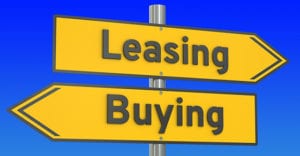
Starting in 2021, the rules for reporting leasing transactions are changing — for both private companies and nonprofits. While these changes have been delayed in the past, they will likely impact your financial statements in the near future. They could even change your mind about renewing a lease or entering into a new leasing contract. In some cases, you may need to modify your lease terms in order to avoid reporting leasing liabilities on your balance sheet. Alternately, you might decide to buy a property and avoid being subject to complex disclosure requirements all together.
New standards
In 2016, the Financial Accounting Standards Board (FASB) issued Accounting Standards Update (ASU) No. 2016-02, Leases. Previously, the effective date for calendar year-end public companies was January 1, 2019. However, the FASB deferred the effective date for private companies and not-for-profit organizations from 2020 to 2021.
The updated guidance requires companies to report long-term leased assets and leased liabilities on their balance sheets, as well as to provide expanded footnote disclosures. Increases in debt could, in turn, cause some companies to trip their loan covenants.
Updates to lease terms
The updated standard only applies to leases of more than 12 months, causing some companies to switch over to short-term leases in order to avoid having to comply with the new guidance.
Others are incorporating evergreen clauses into their leases, where either party can cancel at any time after 30 days. An evergreen lease wouldn’t technically be considered a lease under the accounting rules — even if the lessee renewed on a monthly basis for 20 years.
Be aware that this might not be the best approach from a financial perspective, because the lessor would likely charge a higher price for the transaction. There’s also a risk that short-term and evergreen leases won’t be renewed at some point.
Buy or lease?
The updated standard is causing many organizations to reevaluate their decision regarding leasing or buying both equipment and real estate. Previous accounting guidelines made leasing highly beneficial, since the transactions were reported under Generally Accepted Accounting Principles (GAAP). This meant that operating leases were reported as a business expense that was omitted from the balance sheet, a major upside for any organization with substantial debt.
However, according to the updated guidance, lease obligations will show up as liabilities, similar to purchased assets that are financed with traditional bank loans. Reporting leases also will require expanded footnote disclosures.
It’s possible that the changes in lease accounting rules might convince you to buy property instead of lease. But before switching over, consider these other benefits of leasing: it doesn’t require a large down payment or excess borrowing capacity. Additionally, leases provide significant flexibility in the case of an economic downturn or changes in technology that render an asset obsolete.
Make the right decision for you
When deciding whether to buy or lease a fixed asset, there are several factors to consider and no universally “correct” choice. Contact your trusted Smolin professional to discuss the pros and cons of leasing in light of the updated accounting guidance. We can help you take the approach that best suits your circumstances.
